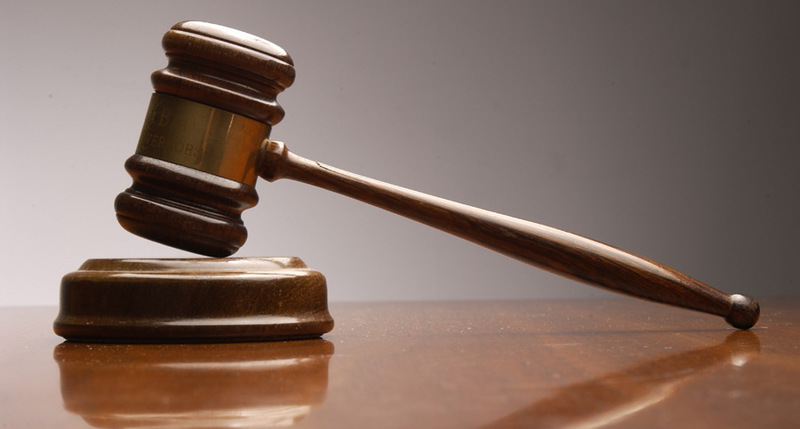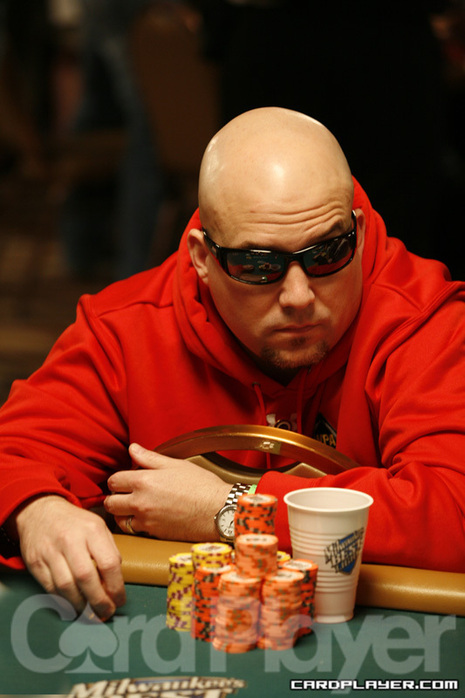






Lynne Mitchnick, Former Backer Of Poker Pro Lee Childs, Gives Her Side Of The LawsuitMitchnick Explains That She Sued Childs For Damages, Not Makeup |
|
|

Back in May, a lawsuit pitting Lee Childs against his former backer Lynne Mitchnick was over and done with in court, but in the aftermath a lot has been said about the case. Many thought the case was controversial because Mitchnick was suing Childs for makeup.
Childs’ lawyer gave his account of the trial, and Lynne gave hers just days later in an open letter to the poker community, which said that Childs violated their staking contract repeatedly.
“What Lee won was not having to pay me any damages,” she told Card Player. “What I won was the jury deciding that he violated the contract in all six ways. This was not a frivolous lawsuit…The jury sided with Lee’s team by saying the breaches of the contract were not material, but they did not side with him completely.”
Card Player had the chance to speak to Mitchnick earlier this month to get her side of the case. She said she wanted to make it clear that Childs violated their contract and that she had sued for damages from him and was not trying to recoup makeup.
Brian Pempus: Can you talk about how you felt Lee violated that contract that you had? And then why you felt you should get damages from him?
Lynne Mitchnick: The reason why I know he violated the contract is that there were six provisions that were under an umbrella heading called “player responsibilities” and lots of evidence was presented that he violated all six of them. The jury indeed found that he violated all six of them.
The subject of damages is a little bit more complicated, but does go to the very heart of the case. There is a clause in the contract that states that if I terminate the contract due to Lee violating it, then he has to pay me outstanding makeup. One of my big mistakes, and I freely admit that there were; I don’t want to say ambiguous, but there were some confusing things in the contract in retrospect. When Lee was asked for input during the contract phase, while we were drafting it, he didn’t express any confusion about the clause at the time. So, there is this clause that he owes me the amount of makeup, but that makeup is because of violating the contract. My mistake was that the contract clause wasn’t labeled “liquidated damages.” If it were, a lot of what ensued might have been avoided. To me, it was a clear statement of liquidated damages, but not to some other people.
BP: Do you think it would have been easier to avoid going to court in the first place if that had been included, or do you think it would have been easier to settle?
 LM: I think it would have been easier to settle. I think it may have been settled out of court because there would have been maybe, I am not sure because I am not an attorney, fewer arguments that Lee’s team could have made. But again, it’s all conjecture because I am not an attorney. I do view it as a mistake on my part in the contract itself.
LM: I think it would have been easier to settle. I think it may have been settled out of court because there would have been maybe, I am not sure because I am not an attorney, fewer arguments that Lee’s team could have made. But again, it’s all conjecture because I am not an attorney. I do view it as a mistake on my part in the contract itself.
BP: Lee’s lawyer took to his website to talk about the case, and he did use really strong language, calling it “distasteful.” Can you talk about why you think he had that opinion and what he got wrong to get to a position where he thought the entire thing was uncalled for?
LM: I actually think that in his website post, he gives us part of the reason for that. In that post, he said that he was “emotionally invested to an extent that was frankly unhealthy.” Those were his words, and I believe it was reflected in his account of the trial. There are a lot of statements in there that are subjective and either serve to what I view as him doing his job, which is to put his firm and himself in the best possible light, or to put me in the worst possible light. I think that has to do with [David’s] emotional investment. I don’t know him outside of this trial, but I do know that during the trial he seemed like a likable, decent person. I just think he was way too overly emotional in his account, and I think he recognized that. In fact, after posting some things on a forum, he privately wrote to me apologizing for what he said, and commending me on my behavior in the face of a lot of his comments. So, that to me says that he knows that some of his comments are over-the-top…To answer your question about how he got things wrong: I think that there are different kinds of wrong. There are some subjective statements that are exactly that and should not be interpreted as fact. There are some things in his account that are factually incorrect. Some of them are irrelevant to any outcome.
For example, he states that I wasn’t there on the last day of the trial. I have no idea how he could state that when I was sitting six feet away from him while in the courtroom. It is true that I was not there when the actual verdict was delivered because I had to catch a plane. I left 20 minutes before the verdict was delivered. He also states that I frequently went to WPT Boot Camp, and he probably states that because it’s set up for him to dismiss one of my witnesses as there being too much of a relationship there. The fact is that I had only been to one Boot Camp when the contract was put into place. So, there are those kinds of things. There are also some factual overstatements or errors about things that are related to the trial. One that has received a lot of attention was what happened at the Venetian when Lee was at a final table and a chop was offered. The way that it has been presented is that I prohibited him from chopping. The reality is that I had no authority under our agreement to prohibit him from chopping. He had chopped numerous times in the past without consulting me. What is true is that he asked me about my opinion, and I said that I didn’t think he should chop because I thought he was the best player at the table. He agreed with me that he was the best player and didn’t chop, but I am on the rail and ultimately it was his decision. And I was on the rail only after I asked him if he minded if I was there, which is something I ask everyone who I back.
 BP: Can you talk about damages vs. makeup and how you were seeking damages rather than seeking buy-ins that he had lost?
BP: Can you talk about damages vs. makeup and how you were seeking damages rather than seeking buy-ins that he had lost?
LM: If I were not involved in the case and I simply based my opinion on David’s account and how that account was summarized in various media, I would think that I am an unreasonable person at best and possibly a moron on top of that. Certainly I would think I had no understanding of what makeup is. I never sued Lee for makeup per se. That would be absurd if a backer thought that he or she could recover makeup like it was a debt. From my perspective, it’s a matter of liquidated damages…Liquidated damages is a legal term that refers to an amount of damages that parties agree to in advance. In our case, Lee and I signed the contract that says that if it’s terminated due to him violating it he has to pay me the outstanding makeup that he accrued. The key here is that makeup is simply the figure that defines the amount of damages. It’s very different than suing for makeup.
By him violating the contract it made it impossible for me to feel comfortable continuing to back him, which meant I was investing in a venture that I was unable to remain in long enough to try to realize a good return on my investment…It’s inconceivable to me that any backer could sue for makeup. It was never about suing for makeup.
BP: Can you talk about why you felt the jury sided with Lee’s team?
LM: I’ve thought a lot about that. In fact, I started thinking about it during the trial. It’s hard to describe the courtroom experience. There were summary judgments made before this trial that made certain subjects inadmissible during the trial. Yet, attempts were made to bring some of those things in. At times there were a lot of objections and there were a lot of sidebar conferences with the judge, and that’s when I started thinking about if I were a juror how would I be interpreting these things. I could easily see myself being a juror and interpreting them as one or both sides have something to hide here. The jury doesn’t know, and the jury cannot be told that these things have already been decided pretrial. So, that’s when I first started thinking about it. To directly answer your question, one thing I’d like to be really clear about: Every headline about this case talks about Lee winning. From a legal standpoint, Lee did not win, nor did he lose. What Lee won was not having to pay me any damages. What I won was a jury saying that he violated the contract in all six ways. From my perspective, what that means is that this wasn’t a frivolous lawsuit. It wasn’t b.s. like [David] always refereed to it as in his written document. It was a case of someone breaching a contract—and a contract that was deemed to be legal in the state of New Jersey and deemed to be subject to New Jersey law. Those last two things happened pretrial when Lee’s team tried to get the case dismissed.
From my perspective, the jury sided with Lee’s team insofar as they found the breaches of the contract were not material and therefore didn’t award me any money. They did not side with him completely. They also offered their opinion that Lee did owe me $5,000 from a personal loan. This was offered only as the jury’s opinion because the loan was not a separate issue in the lawsuit. So the jury did not have the authority to award it to me, but part of their official statement is that he does owe me $5,000 from that personal loan, which I don’t expect to see a penny of that…My best guess is that [the outcome] was a combination of factors. The first is that the concept of liquidated damages is a bit difficult for people in general…The second reason is, in my opinion, probably the one that affected the jury’s decision the most, and that is during the trial Lee’s team emphasized that I had not suffered any monetary loss, which if I understand the way liquidated damages works from a legal perspective, that’s irrelevant to liquidated damages. If I am a juror that’s relevant to me. They not only argued that I had not suffered any monetary loss, but they argued that I had in fact profited by $17,000 over the course of the four years in which I backed Lee. To this day, I don’t know where this $17,000 figure comes from. It’s higher than the figure I could calculate, but in any case I made a small profit. And I think it’s likely that no monetary loss made it very difficult for the jury to think in terms of damages. The third factor, which given the two before, I think was less relevant. The third thing is that my own trial testimony about damages was not optimal. I could have done a better job of explaining it to them than I actually did. So, I think taken together, if I am a juror who knows nothing about makeup and poker staking, it’s not difficult for me to see, although I disagree, how the jury concluded what they did.
